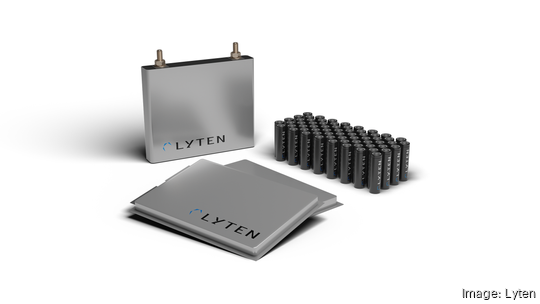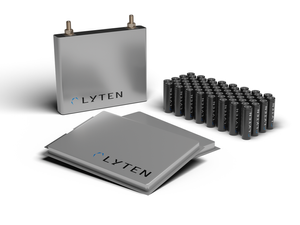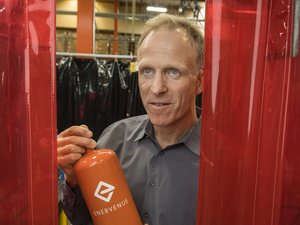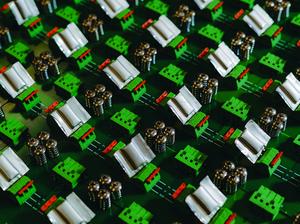
Battery startup Lyten Inc. announced Tuesday the close of an "oversubscribed" $200 million Series B round to continue building up the production of its batteries.
The San Jose startup, which is developing lithium-sulfur batteries, told the Business Journal that this round's funds will go towards the company's pilot line announced three months ago.
The round "is an affirmation of our technology of what our team has been able to accomplish and achieve working together in supporting the core technology, as well as the applications, " said Lyten CEO Dan Cook. "I think that the U.S. has has long awaited a domestic battery solution. For the industry, in general, to have domestic energy storage is both exciting and is a really critical need for our domestic industry."
The round was led by Prime Mover Lab, with participation from Stellantis NV, FedEx Corporation, Honeywell International Inc. and Walbridge Aldinger Company. Stellantis had previously announced the partnership with Lyten and its intend to invest in the company.
Lyten's batteries are built around 3D graphene, a carbon-based material it developed. They work without using cobalt, manganese or nickel, metals found in traditional batteries that are often mined in ways that are harmful to the environment and workers. The batteries also are designed to be safer and cheaper than what's currently on the market, according to the company.
The pilot line, announced in June and housed at 145 Baytech Dr., is expected to make 200,000 battery cells annually at the facility. Lyten plans to use it to pilot this version of its technology until 2025, at the latest. The startup had told the Business Journal that it plans to use the line to produce initial test batteries for customers, and will use data collected to make improvements to its product and production line as its gears up for opening a fill manufacturing plant.
According to Cook, the investment is will help bring the company's product to market at its expected timeline.
In a report published last month in Science Advances, a volcanic crater called McDermitt Caldera on the Nevada-Oregon border harbors what could be the largest lithium deposit in the world. The discovery presents itself at a time where companies are looking for ways to minimize their carbon footprint with lithium-based battery power.
Cook said, the news wasn't shocking to him, but that it doesn't change anything for the company now.
"I'm actually pleased to see that it's beginning to be noticed and discovered that the United States has substantial lithium deposits and that bodes well for a domestic battery supply chain," Cook said. "The amount of supply that's been identified and these deposits like the Caldera, and other places give us a great hope that we, along with other partners in the US who are seeking to develop supply chain, will will have ample supply for years to come."







